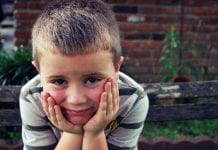The connection between ADHD and Sleep Disorders.
Many children and adults with ADHD battle to sleep for many reasons. Biologically, the same part of the brain that aids attention, also aids sleep. Children with ADHD will battle to attend during the day and sleep at night because of this.
50% of children with ADHD have sleep disordered breathing. Not only do they sleep fewer hours, but they also have poor sleep quality.
It takes children with ADHD longer to fall asleep than other children even if they are tired. They are frequently impatient, irritated and impulsive and it makes them less likely to be able to lie still in bed and resist the urge to play or talk so that they can fall asleep.
Seep medication that help many sleepless adults do nothing or may have the opposite effect on a child who has a developing brain.
According to the American Academy of Sleep Medicine, even moderate sleep deprivation – losing less than one hour of sleep per night can negatively affect the academic performance of children with ADHD/ADD.
Yet ADHD/ADD and the medication used to treat the condition are known to disrupt sleep patterns, making it difficult to fall and stay asleep – making bedtime a nightmare for parents with kids with ADHD/ADD. Adults with ADHD or ADD rarely fall asleep, because ADHD’s mental and physical restlessness disturbs a person’s sleeping pattern.
The FOUR Big ADHD Sleep Problems:
- Difficulty falling asleep with ADHD. Prior to puberty, 10 – 15% of children with ADHD have trouble falling asleep. 50% of 12 yeas old children with ADHD have difficulty falling asleep almost every night. More than 70% of adults (30 years and older) with ADHD report that they spend more than one hour trying to fall asleep at night.
- Restless Sleep with ADHD. Sleep is not refreshing and they awaken as tired as when they went to bed.
- Difficulty waking up with ADHD. More than 80% of adults with ADHD experience multiple awakening until 4 am. Then they fall into “the sleep of the dead” from which they have extremely difficulty rousing themselves.
- Intrusive Sleep with ADHD. When an individual with ADHD loses interest in an activity, his nervous system disengages, in search of something more interesting. Sometimes this disengagement is so abrupt as to induce sudden extreme drowsiness, even to the point of falling asleep.
Alternative medication options are available such as Essential Oils namely “Calm” by Root Element an Essential oil Blend to assist in relieving night time restlessness and inconsistent sleep patterns. Please visit the Root Element website for more information on their 100% pure & natural essential oil range with separate formulas for Children and Adults. Changing lives one drop at a time Naturally.















